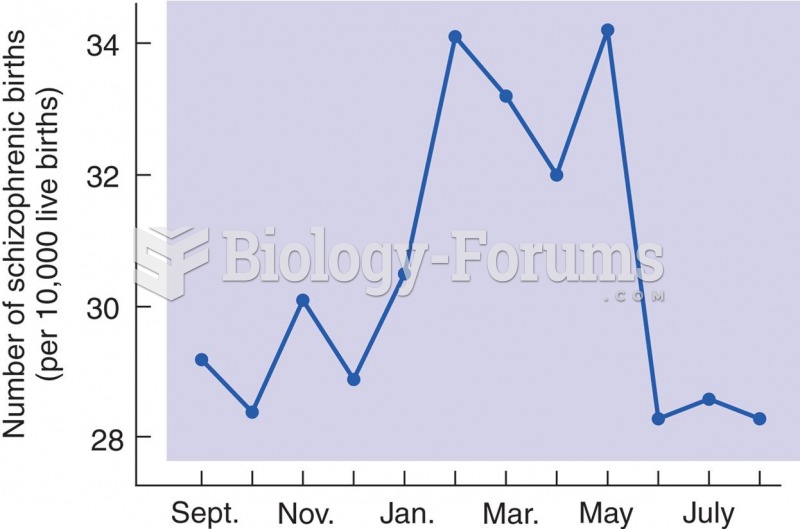|
|
|
When taking monoamine oxidase inhibitors, people should avoid a variety of foods, which include alcoholic beverages, bean curd, broad (fava) bean pods, cheese, fish, ginseng, protein extracts, meat, sauerkraut, shrimp paste, soups, and yeast.
Amphetamine poisoning can cause intravascular coagulation, circulatory collapse, rhabdomyolysis, ischemic colitis, acute psychosis, hyperthermia, respiratory distress syndrome, and pericarditis.
The Centers for Disease Control and Prevention has released reports detailing the deaths of infants (younger than 1 year of age) who died after being given cold and cough medications. This underscores the importance of educating parents that children younger than 2 years of age should never be given over-the-counter cold and cough medications without consulting their physicians.
Nearly 31 million adults in America have a total cholesterol level that is more than 240 mg per dL.
The Babylonians wrote numbers in a system that used 60 as the base value rather than the number 10. They did not have a symbol for "zero."
 A number of tree species can be interconnected by mycorrhizal fungi in the forests of British Columb
A number of tree species can be interconnected by mycorrhizal fungi in the forests of British Columb
 Correlations on tests for a number of cognitive abilities are higher for monozygotic twin pairs (who ...
Correlations on tests for a number of cognitive abilities are higher for monozygotic twin pairs (who ...





